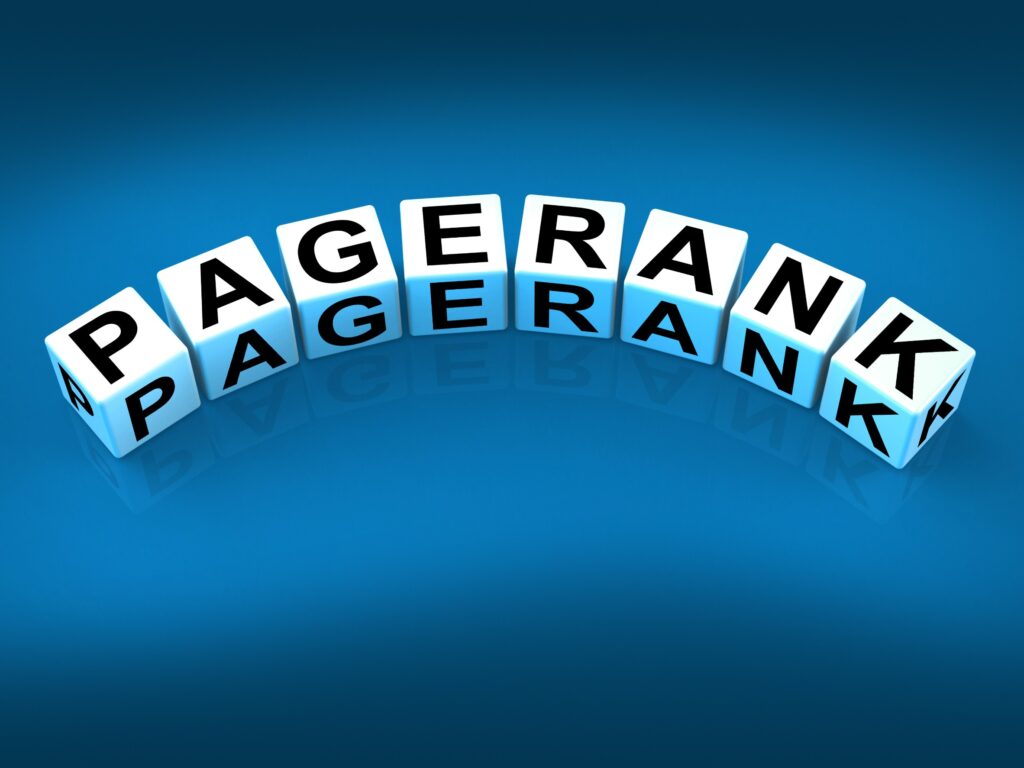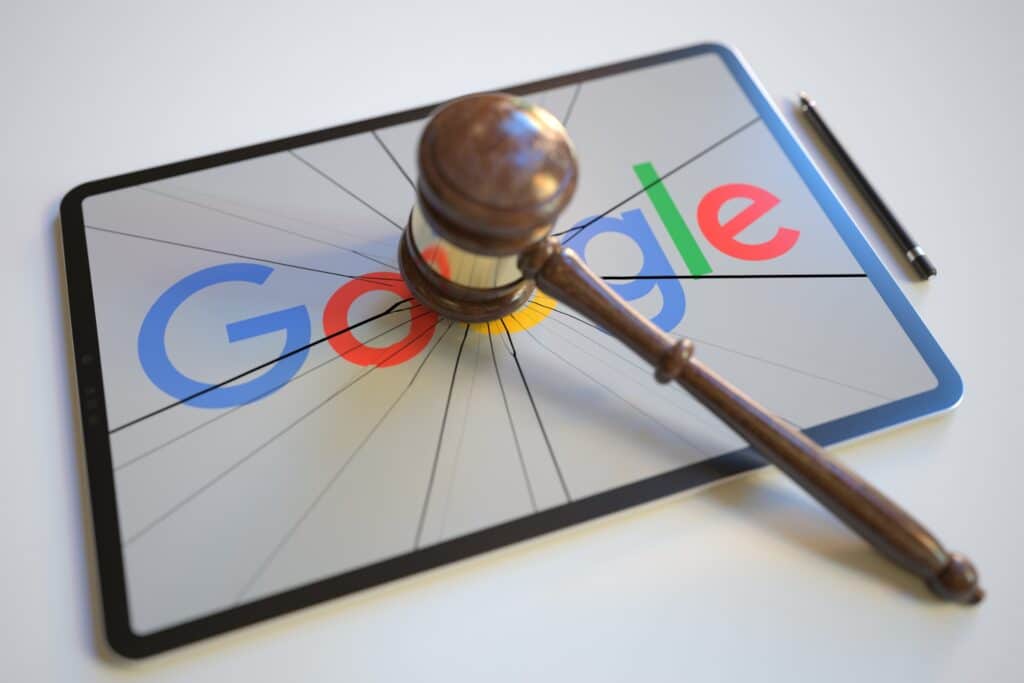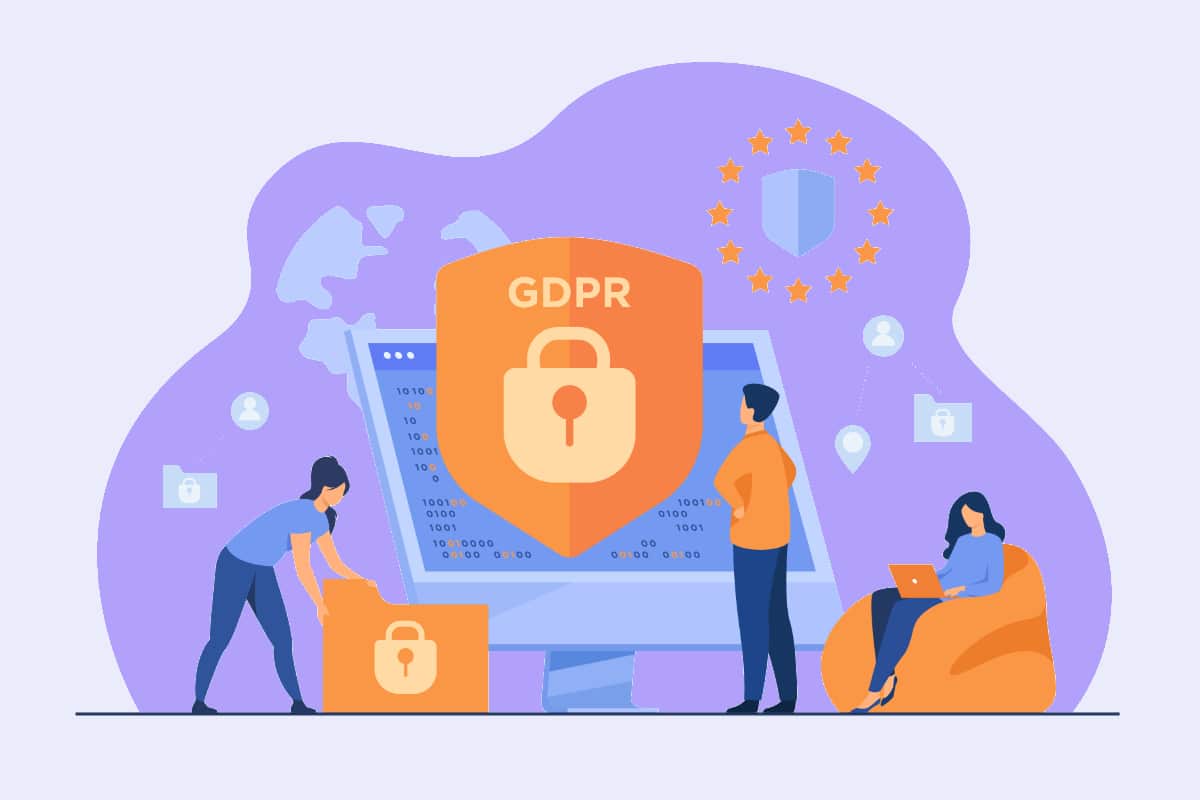PageRank is an algorithm developed by the founders of Google, Larry Page and Sergey Brin, in the 1990s. It revolutionized the world of SEO by introducing an innovative method to evaluate the importance and relevance of pages. Since then, PR has become a key element of SEO and has influenced the way websites are ranked in search results.
Although PageRank is no longer the only criterion used by Google to rank pages, it remains an important indicator to evaluate the quality and popularity of a website. Understanding how it works, how it is calculated and its scope is essential to improve the visibility of your site and optimize your natural referencing.
In this article, we will explore in detail the notion of PageRank. We will start by defining what PR is and its history, then we will study its calculation and the factors taken into account. Then, we will discuss its scope and its influence on natural referencing. We will also see how to optimize it during a website redesign and thanks to semantic optimization techniques. Finally, we will talk about the services and specialized agencies that can help you improve the page score on your Wordpress site.
Definition of PageRank
Origin and history
Theranking algorithm was designed by Google co-founders Larry Page and Sergey Brin while they were still students at Stanford University. The basic concept was based on the idea that links between pages could be considered votes of confidence and authority. Thus, the more inbound links a page received, the more important and relevant it was to users.

Functioning and purpose
The main objective of this algorithm is to evaluate the importance and relevance of pages based on the links they receive. Each incoming link is considered a vote of confidence. However, not all votes have the same value: a link coming from a page with a high score itself will have more weight than a link coming from a lower ranked page.
PageRank calculation
Factors taken into account for the calculation
Several factors are taken into account when determining a page's score, including:
- The number of inbound links pointing to the page
- The authority of the pages that send these inbound links
- The quality of the incoming links, i.e. their relevance to the subject of the linked page
The mathematical formula
The original PageRank formula is based on a probabilistic model that takes into account the factors mentioned above. There is no need to learn how to use it, unless you want to get your brain in knots. However, it is useful to know what it is made of. The score of a page is calculated using the following formula:
PR(A) = (1-d) + d (PR(B)/L(B) + PR(C)/L(C) + ... + PR(N)/L(N))
Don't worry, it's not Chinese! Let's unravel this equation together:
In this formula, PR(A) represents the PageRank of page A, d is a damping factor, and PR(B)/L(B), PR(C)/L(C), etc., represent the scores of the pages linked to A, divided by the total number of outbound links from those pages.
Updates and evolutions over time
Over the years, the PageRank algorithm has undergone several updates and improvements to adapt to the evolution of the web and new user practices. However, even though Google has introduced many other ranking factors, PR continues to be a key element of SEO and web page quality evaluation.
The scope of PageRank

The influence on natural referencing
It plays a crucial role in the positioning of a site in search results. A high score can help improve the visibility of a page and increase its organic traffic.
The limitations and importance of other referencing factors
Although PageRank is an important indicator, it has some limitations. That's why it's essential to consider other SEO factors to optimize a site's performance, such as content quality, site architecture, loading speed and keyword relevance.
Strategies to improve your score
To improve the PR of your site, you can implement several strategies:
- Get quality backlinks from sites with good authority
- Create quality content that is relevant to your audience
- Optimize the architecture and navigation of your site to facilitate exploration by search engine robots
The stakes when redesigning a website
Preservation during a redesign
When redesigning a website, it is crucial to preserve the existing PageRank to avoid loss of organic traffic. To do so, it is advisable to set up 301 redirects for pages with changed URLs, keep a consistent internal link structure and maintain good content quality.Take a look at our guide on the methods and dangers of a website redesign.

Mistakes to avoid
Some mistakes made during a redesign can hurt your page score, including:
- Remove high-scoring pages without redirecting them to relevant destinations
- Modify the architecture of the site without taking into account the existing internal links
- Introduce duplicate or low quality content
Semantic optimization and high performance content to improve the score
The importance of quality content for a better score
Quality content is essential to obtain a good ranking in search results and, consequently, to improve the score associated with your site. A relevant content, well structured and rich in useful information for visitors, is likely to attract natural backlinks, which directly contributes to the improvement of the authority score.
Semantic optimization techniques to boost the score
To semantically optimize your content and boost this score, you can implement the following techniques:
- Thorough keyword research: identify the terms and expressions relevant to your topic and integrate them naturally into your content.
- Content structuring: use HTML tags to prioritize your content (H1, H2, H3 titles, etc.) and make it easier to read for users and search engine spiders.
- Use LSI semantics: include terms and expressions that are synonymous or related to your main topic to enrich the semantic context of your content and improve its relevance.
- Creating long, in-depth content: long, detailed articles tend to score higher, as they are perceived as offering added value to readers.
- Regularly update content: Keep your pages relevant and ensure that the information they contain is up to date.
The importance of internal links for effective score distribution and optimal navigation
Internal links play a crucial role in spreading the score within your site and improving the user experience. A well-designed internal linking strategy helps reinforce the structure of your site and ensure smooth navigation for visitors.

Balanced score distribution
By judiciously linking your pages together, you promote a balanced distribution of the score across your entire site. This allows you to assign a relative value to each page and avoid the concentration of the score on only a few destinations. A good distribution ensures that all your pages benefit from a favorable score, which improves the overall positioning of your site.
Optimization of user navigation
An effective internal linking strategy also makes navigation easier for users, naturally guiding them through the different sections of your site. A well thought-out internal mesh helps visitors find the information they are looking for quickly and easily, thus improving the user experience. Optimal navigation also helps reduce bounce rates and increase time spent on the site, which can have a positive impact on SEO.
Tips for a successful internal linking strategy
To succeed in your internal linking strategy, make sure to createrelevant links between your pages, focusing on complementary content and avoiding forced links. Use clear and descriptive text anchors to inform users of the link's destination. Also, remember to add new content regularly and update internal links accordingly to maintain a consistent and relevant structure.
Penalties associated with the score: abusive netlinking practices and their consequences
Unethical netlinking techniques, such asbuying links, can result in penalties and negatively affect your site's score and ranking. It is essential to understand these practices and their consequences to avoid damaging your SEO.

Abusive netlinking practices
Among the netlinking practices considered abusive are link buying, massive link exchange, link farms and the use of hidden links. These techniques aim to manipulate the score and deceive the search engine algorithms, which goes against the quality guidelines imposed by Google.
Consequences on the score and positioning
When Google detects abusive netlinking practices, it may penalize your site by reducing its score or removing it temporarily or permanently from search results. These penalties can have a significant impact on your site's visibility, reduce organic traffic and damage your online reputation.
How to avoid penalties
To avoid score penalties, it's important to follow Google 's quality guidelines and focus on ethical netlinking techniques. Focus on getting natural links from quality sites, creating relevant, informative and engaging content that encourages other publishers to mention you. Don't forget to regularly monitor your backlink profile for irregularities and take steps to correct them.
Services and agencies specialized in score optimization
The advantages of working with specialized agencies
Calling upon specialized agencies, such as Agence Wordpress Paris or Agence Wordpress Genève, has several advantages to improve your site's score. These agencies have in-depth expertise in the field of natural referencing and are up to date on the latest trends and techniques to optimize your site. Moreover, by working with professionals, you benefit from personalized support and advice tailored to your specific needs.
The services offered by the consultants
Wordpress specialists, such as Wordpress Consultants, offer a range of services to help you optimize your score. These services includeSEO audit, backlink analysis, content creation and optimization, netlinking strategy and performance monitoring. These experts can also assist you in identifying areas for improvement and implementing concrete actions to boost your ranking in search results.

The areas of expertise for the creation of sites adapted to different sectors
Agencies and consultants specialized in Wordpress also offer website creation services adapted to various sectors of activity. For example, Paris Website Design and Toulouse Website Design are services for local businesses and entrepreneurs who want to develop their online presence. Similarly, Artisan Website Design offers customized solutions for artisans and small businesses, with a focus on score optimization and local SEO.
Conclusion
To summarize, the score is an important factor in SEO, and understanding it is essential to improving the visibility of your site online. The key points discussed in this article include the definition of the score, its calculation, its scope, improvement strategies and the importance of quality content.
It is essential to implement optimization strategies to improve your site's score and, consequently, its positioning in search results. Whether you choose to work with specialized agencies or consultants, or whether you decide to train and apply these techniques yourself, the effort is worth it. By improving your site's score, you will increase its visibility, attract more visitors and strengthen your online presence.




